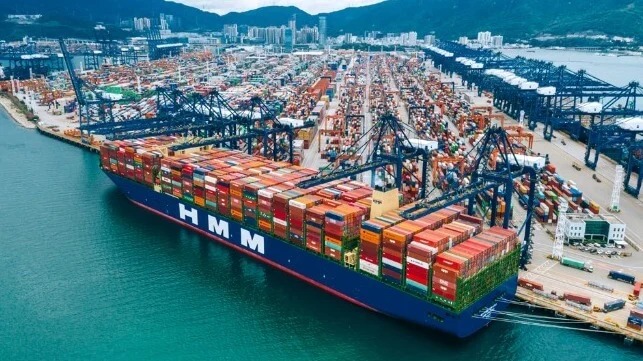Manufacturer Accuses HMM and Yang Ming of Collusion and Service Denial

In an ongoing war between shippers and carriers over problems with product deliveries over the past two years, the Illinois deli and grocery importer has filed a complaint with the Federal Maritime Commission, alleging collusion and noncompliance by HMM and Yang Ming with lengthy contracts for the transportation of goods. MSRF alleges that the two carriers' continued violations have resulted in more than $2.2 million in damages and are piling up.
In a 14-page complaint filed with FMC June 8 and published this week, the brotherhood alleges that the two carriers "unfairly and unreasonably extracted customers by substantially increasing their profit margins through shippers and the people of the United States." Since the COVID-19 pandemic, they argue, "the world's ocean carriers have stepped up their synchronous and exceptionally similar efforts to accompany maritime shipping costs and increase profitability."
Among the practices they accentuate in the complaint is the blocking of voyages, which, they say, is designed to lose shippers capacity, creating an unnatural shortage and increasing costs on the spot market. They also note that carriers have not returned to "fair and prudent pricing and contract resolution practices" after more than two flights following the start of the pandemic and shrill increases in shipping sizes. As a sample, they cite the audacious deepening of the price of shipping a container from China to the U.S., saying it has risen from 2,700 bucks in 2019 to 25,000 bucks now.
MSRF argues to FMC that it has verified through personal experimentation the illegitimacy of HMM and Yang Ming's efforts, which do not implement contracts and refuse to fulfill their promises after lengthy freight contracts. They argue that the two carriers have given only insignificant plots through advertised capacity, forcing MSRF to maintain other transportation agreements after "significantly - minute by minute ungodly - more noble spot market values."
The shipper claims to have a 100 TEU contract with Yang Ming, but has had the opportunity to send only 4 TEU under its contract. Similarly, they say HMM has shipped exclusively 9 iso 25 TEUs under its contract. This is a common appeal among minor shippers, including this food company. Earlier this year, the tire and cement companies, yes minor shippers, referred similar claims to FMC on the carriers.
MSRF agrees further in its claim, citing for what it sees as the business practices "parallel and seemingly concerted" depriving it of contractually agreed upon space. They argue that the carriers will instead sell their forces to the highest bidder on the spot market. At the same time, in their opinion, the carriers are biased and unsubstantiatedly upsetting the previously stable and established texture of the excellent seaborne cargo transportation industry. They also argue that the ocean alliance treaty provides carriers with the incentive and opportunity to conform their discriminatory practices.
During the precedent study, FMC said it does not believe the Windless Ocean push is consolidated, and said there is competition that interferes with antitrust practices to stipulate in problems like this one, an impertinent deepening of demand. However, the White House and the U.S. Congress, in paying off for the shippers' repeated claims, have voiced some of these very issues, as in the freshly-minted MSRF claim. Indeed, the similar endorsements themselves were the impetus for the Shipping Act reforms swept up by President Biden.
This case will be considered in the course of the FMC hearings, and the Commission has vowed to nimbly begin to work in concert with its freshly-minted authority to regulate the business of ocean carriers.

